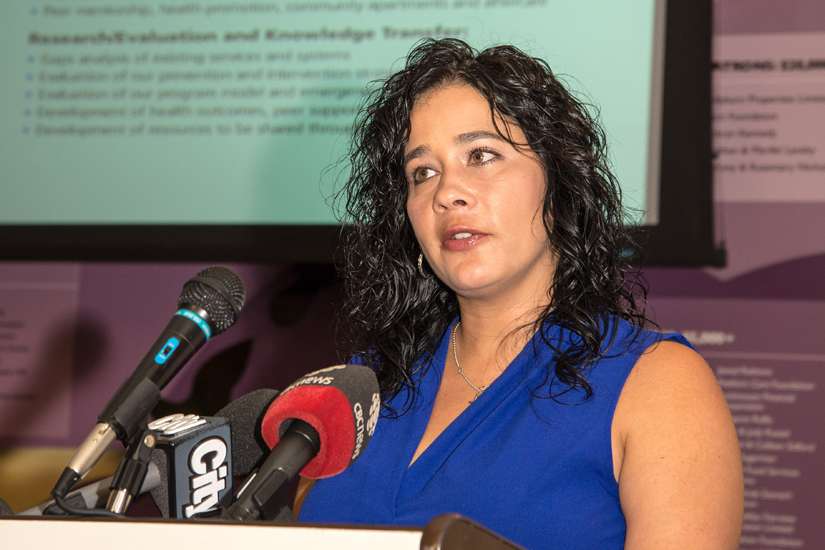“It was messy,” Diamond told The Catholic Register.
The 10 years she had spent in prostitution — handing her money over to a man who controlled her every movement, using street drugs to get through the day — left her emotionally broken and unprepared for normal life.
“I left with nothing,” she said. “It takes a long time for a trafficked girl to adjust and not believe her trafficker isn’t waiting around the corner to take her back to the life she left.”
Diamond has been advising Covenant House in downtown Toronto on the support that’s necessary for a trafficked girl to recover and restart her life. Her advice and experience have been incorporated into The Rogers Home, which welcomed its first resident the week of Sept. 18.
Up to two years of transitional housing, coupled with counselling, medical care, addictions treatment and education will make Rogers Home the key element in Covenant House’s urban response model for sex-trafficking victims. Seven young women, 16- to 24-years-old, will be housed in a large, restored Victorian home at a secret location in Toronto.
“This is a huge turning point,” said Covenant House executive director Bruce Rivers. “They will have an opportunity to reclaim their lives.”
It also means a more comprehensive response to a growing problem, Rivers said. Since last October, Covenant House has had funding from the city for two emergency beds at the Gerrard Street shelter reserved for sex-trafficked girls and young women. The beds have been used almost every night. Last year the downtown youth shelter saw a 40-per-cent increase in trafficking and sexual exploitation cases. Covenant House worked with 64 sex-trafficking victims in 2015.
A safe and systematic way out of sex trafficking is something that just wasn’t there for Diamond when she decided to get out.
“Nobody was talking about this issue,” she said. “There was no counselling.”
Diamond was lucky enough to be taken in by a family whom she trusted. They provided her with a home and a job in the family scrap yard business, where she was able to work out her anger and grief sorting metal outdoors all day.
But that kind of good fortune isn’t a system, which is why Diamond is encouraged by the new Covenant House pilot project.
The formerly derelict house got an $850,000 renovation from the City of Toronto. Covenant House is renting the property from Toronto Community Housing Corp. at a nominal fee. Douglas Design Studio provided interior furnishings and design at reduced cost. Suzanne Rogers, whose family owns Rogers Communications Inc., is heading up a $10-million fundraising campaign which has so far raised $8.8 million. The funding will cover the first five years of operations.
Rogers Home is both a pilot and a research project for Covenant House. Covenant Houses in Guatemala and Honduras and in New York City have specific programs for sex-trafficking victims, but the Toronto Covenant House response is unique, Rivers said.
In addition to recovery and reintegration at Rogers Home, the Covenant House urban response model works on prevention. Covenant House has already booked talks with high school students at 11 different schools around the city. Students are taught the signs and symptoms of entrapment and trafficking and told where they can find help.
Care for victims doesn’t suddenly end after two years at Rogers Home. Covenant House will move the girls into apartments, help them find jobs and continue providing peer support, mentoring and counselling.
Both the cruelty of the sex trade and the vulnerability of young women caught in it are hard for many people to imagine, said Diamond. She recalls how she thought her pimp loved her.
“I did not know then that you do not sell the people you love to men,” she said.
A successful transition out of prostitution should provide victims with “dignity and control over our own bodies,” she said.
“All the word survivor means to me is the ability to hope,” Diamond said.


